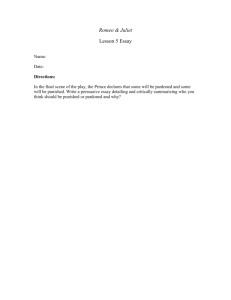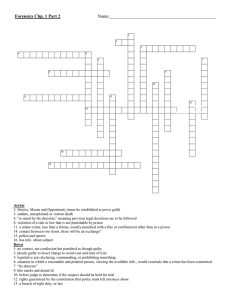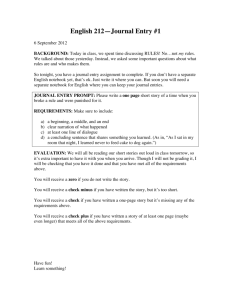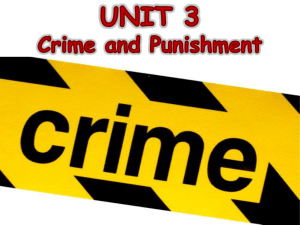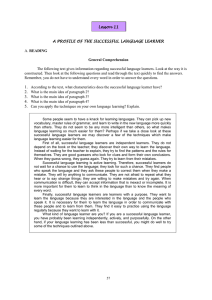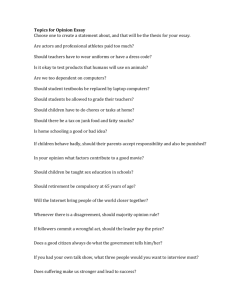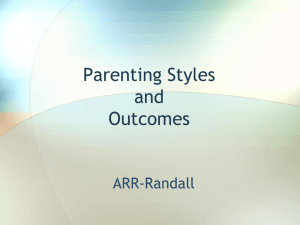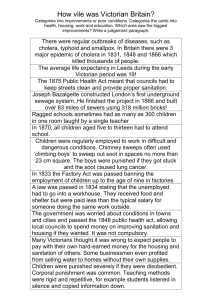A. Reading ECONOMIC VALUE 1
advertisement
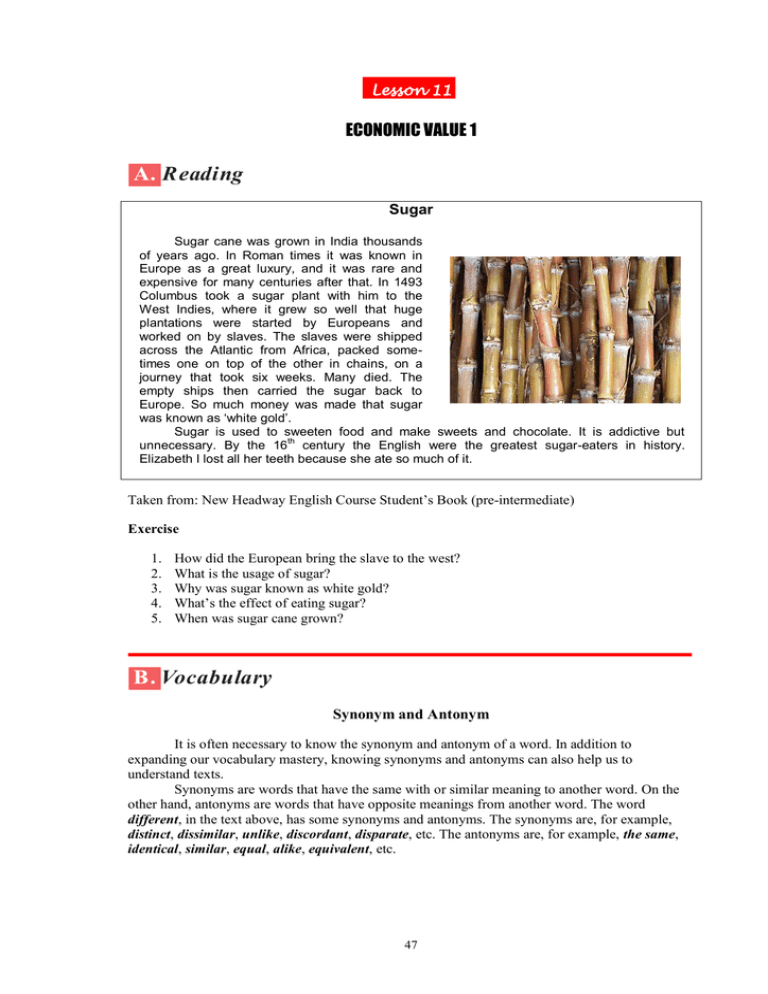
Lesson 11 ECONOMIC VALUE 1 A. Reading Sugar Sugar cane was grown in India thousands of years ago. In Roman times it was known in Europe as a great luxury, and it was rare and expensive for many centuries after that. In 1493 Columbus took a sugar plant with him to the West Indies, where it grew so well that huge plantations were started by Europeans and worked on by slaves. The slaves were shipped across the Atlantic from Africa, packed sometimes one on top of the other in chains, on a journey that took six weeks. Many died. The empty ships then carried the sugar back to Europe. So much money was made that sugar was known as ‘white gold’. Sugar is used to sweeten food and make sweets and chocolate. It is addictive but unnecessary. By the 16th century the English were the greatest sugar-eaters in history. Elizabeth I lost all her teeth because she ate so much of it. Taken from: New Headway English Course Student’s Book (pre-intermediate) Exercise 1. 2. 3. 4. 5. How did the European bring the slave to the west? What is the usage of sugar? Why was sugar known as white gold? What’s the effect of eating sugar? When was sugar cane grown? B. Vocabulary Synonym and Antonym It is often necessary to know the synonym and antonym of a word. In addition to expanding our vocabulary mastery, knowing synonyms and antonyms can also help us to understand texts. Synonyms are words that have the same with or similar meaning to another word. On the other hand, antonyms are words that have opposite meanings from another word. The word different, in the text above, has some synonyms and antonyms. The synonyms are, for example, distinct, dissimilar, unlike, discordant, disparate, etc. The antonyms are, for example, the same, identical, similar, equal, alike, equivalent, etc. 47 Economic Value 48 Exercise 1 Fill in the space with a synonym of the underlined word. Use a word from the box to help you. much greatest possibly distinct similarities special juniors universal children unwatched 1. The seven species are quite different from one another; their characteristics are quite … . 2. Most of the animals nurse their young with milk. They treat their … with the greatest care. 3. We must be able to make some very general predictions about its structure and function, that is, such predictions must be … . 4. We could also make some specific predictions which tell us about the … characteristics of the things. 5. There is a great deal of understanding about the problem. We know … about it. 6. Before you use an infant formula, consult you doctor first. A … dosage is different from an adult one. 7. Leaving babies unattended may cause choking. So we must never leave babies … . 8. These animals have close resemblances among each other. They have a lot of … . 9. It would probably have wheels or runners—it can … run like cars. 10. Breast milk is best for babies. It is the … food for babies. Exercise 2 Do the same as you did above. This time, you are working in antonyms. Find a word that will be an antonym to the underlined word. general adult worst old identical watched dissimilarities certainly specific little 1. The seven species are quite different from one another; however, their behaviours are quite … . 2. Most of the animals nurse their young with milk. When they become …, they look for their own food. 3. We must be able to make some very general predictions about its structure and function, that is, such predictions must not be too … . 4. We could also make some specific predictions which tell us about the characteristics of the things. These characteristics, however, cannot be regarded as … . 5. There is a great deal of understanding about the problem. Formerly, we knew very … about it. 6. Before you use an infant formula, consult you doctor first. An … dosage will be very different 7. Leaving babies unattended may cause choking. So we must always leave babies … . 8. These animals have close resemblances among each other. They do not have a lot of … . 9. It would probably have wheels or runners—it … can run like cars. 10. Breast milk is best for babies. The … food is badly-produced milk. Economic Value 49 C. Grammar Passives: Simple Tenses Most of us are already familiar with the passive voice. It is the sentence which takes to be + past participle as its verb. There can be two ways to understand the passive voice. We will call these: simple passive voice and complex passive voice. Today, we will study the former. ACTIVE PASSIVE The headmaster often punishes him. He is often punished by the headmaster. The headmaster punished him yesterday. He was punished by the headmaster yesterday. The headmaster punished them yesterday. They were punished by the headmaster. As you can see from the examples above, the verb of the passive voice is constructed of to be + past participle. They are is punished, was punished, and were punished. The more complete forms of the be verbs are as follows: Singular Present 3rd person 1st person nd 2 person Past 3rd person 1st person nd 2 person Plural He She It I is punished. They are punished. am punished. We are punished. You are punished. You are punished. They were punished. We were punished. You were punished. He She It I was You were was punished. punished. punished. Because we use the be verb, we must always think of the agreement between the verb and the subject and the tense. As we can see in the above table, we can ask these questions: Is the active sentence in the present or past tense? Is the subject of the passive sentence the first, second, or third person? Is this subject singular or plural? The steps for changing the active sentence into the passive voice is as follows: 1) Pick out the object of the active sentence to be used as the subject of the passive sentence. 2) Select the form of the verb be according to the considerations above. 3) Turn the full verb of the active sentence into the past participle form. 4) Complete the sentence. Economic Value 50 Exercise Rewrite the sentences in their passive forms. The first sentence is given as an example. It is useful to follow the procedure given above step by step. 1. The Swiss nation does not need submarines. Submarines are not needed by the Swiss nation. 2. The vertical line divides the space. 3. The teacher gives us many assignments each week. 4. PT Dino Industrial Ltd. produces various Biore make-ups. 5. The central authority plans the whole information program. 6. The government issued the regulations yesterday. 7. In 1992, the government set up an official planning body. 8. The committee punishes you for bad conducts. 9. The students discussed the solution to the problems yesterday. 10. Hair covers the whole body of the animal. 11. The scientists recognize seven sub-species of animals. 12. They told me about the accident yesterday. 13. The utility determines the relationship between a consumer and a commodity. 14. The cash account shows the cash effects of business transaction. 15. He combines them into seven species.
